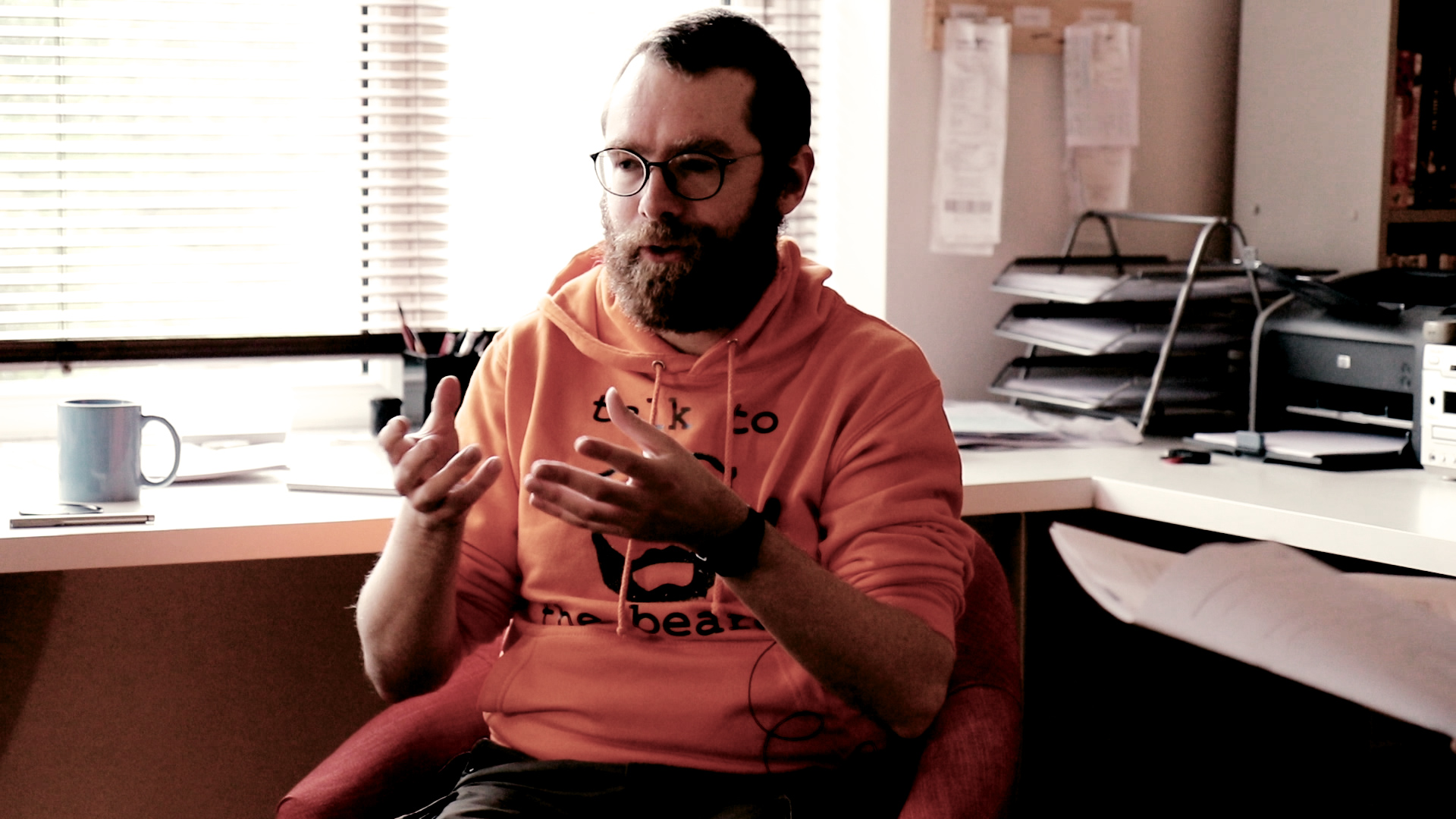
‘Brilliantly imaginative’—Tom Service, The Guardian
‘Brilliantly imaginative’—Tom Service, The Guardian‘A striking musical imagination’—Paul Driver, The Sunday Times
James Olsen is a British composer and the founder of Olsen Verlag. Born in London in 1982, has seen performances of his music by orchestras and ensembles including the London Symphony Orchestra, the London Sinfonietta, the Philharmonia Orchestra, the Britten Sinfonia, Deutsches Symphonie-Orchester Berlin, the BBC Singers, the Galliard Ensemble, Tête à Tête opera and Minguett Quartet and by, amongst others, George Benjamin, Martyn Brabbins, Nicholas Cleobury, Clio Gould, Dominic Grier, Timothy Henty, Rolf Hind, Gweneth-Ann Jeffers, Simon Lepper, Sarah Leonard, Tim Mead, David Porcelijn, Nicholas Rimmer and Paul Watkins.
James first came to attention at the age of 16, when his wind quintet Imbroglio was performed by the Galliard Ensemble at the South Bank Centre and released on the ensemble’s debut commercial CD; Gramophone magazine described the piece as ‘an uncommonly assured and thoroughly engaging essay from a precocious figure’ and The Times declared him a ‘great British hope’. He read music at King’s College, Cambridge, where he gained a double starred first, and studied composition with Wolfgang Rihm in Germany and with Julian Anderson, Colin Matthews, Robin Holloway, Michael Finnissy and Adam Gorb in the UK.
He has received commissions from, amongst others, the BBC, the Britten-Pears Foundation, the Britten Sinfonia, Deutsches Symphonie-Orchester Berlin, Klangspuren Schwaz, the London Sinfonietta, the London Symphony Orchestra, Tête à Tête opera and Wigmore Hall.
Three commercial recordings of his music have been released, including a recording of Chameleon Concerto, performed by Clio Gould, Rolf Hind and the London Sinfonietta and conducted by David Porcelijn, which was released as part of the London Sinfonietta’s Jerwood Series on NMC. James’s music has been broadcast by BBC Radio 3 in the UK and by DeutschlandRadio Berlin and Kulturradio in Germany.
His arrangement of Mahler’s Des Knaben Wunderhorn songs for voice and chamber ensemble were first performed by Ann Murray DBE, Simon Keenlyside, the Belcea Quartet and others conducted by Paul Kildea at Wigmore Hall, and was subsequently performed on tour around continental Europe by the London Sinfonietta conducted by David Atherton.
Recent projects include a large work commissioned by the Bournemouth Symphony Orchestra to commemorate the 75th anniversary of D-Day and performed as part of the national commemorative events in Portsmouth on 7 June 2019, scored for children's choir, 4 children narrators, 11 professional musicians from the Bournemouth Symphony Orchestra, an orchestra of community musicians and live video.
Current projects include a 'composed liturgy' commissioned by Ely Cathedral for 250 schoolchildren to perform alongside Ely Cathedral choir and members of the Britten Sinfonia. This piece was originally scheduled to be performed in June 2020 but has been postponed to the 2021-22 season due to the Covid-19 pandemic.
James received a PhD in musicology in 2009 from the University of London with a dissertation on ‘Understanding The Rite of Spring through the Creative Responses of Listeners’ supervised by Professor Nicholas Cook. He lectures and supervises undergraduates at the University of Cambridge, where he teaches composition and topics in the history and analysis of music from 1700 to the present. He also teaches composition privately.
In 2017, James founded Olsen Verlag with the aim of bringing classical music to wider audiences, and to supporting musicians, especially young musicians, through various projects. Since then, hundreds of children and adult community musicians have participated in our projects involving the commissioning of new works by James[/projects], and we have helped organisations secure over £70,000 in funding for these projects.
James also has a YouTube channel aimed at giving aspiring young composers and musicians an insight into the life of a professional composer.
Recent opinion posts:
There’s no reason to avoid the term ‘classical music’Music education shouldn’t produce fiddler crabs
